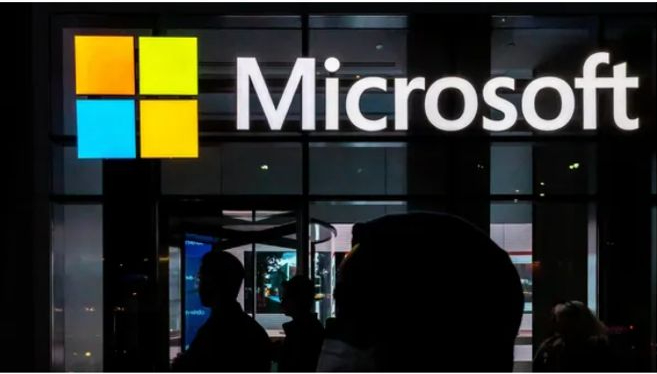A global IT outage has caused widespread travel disruptions, with banking and healthcare services also significantly impacted.
Numerous flights have been grounded, leading to long queues and delays at airports. Cyber-security firm Crowdstrike has acknowledged that the issue was caused by an update to its Falcon antivirus software, designed to protect Microsoft Windows devices from malicious attacks.
Microsoft has stated it is taking “mitigation action” to address “the lingering impact” of the outage.
Here is a summary of the current situation.
The CEO of global cyber-security firm Crowdstrike, George Kurtz, has identified a “defect” in a “content update” for Microsoft Windows devices as the root cause of the problems.
He assured that “the issue has been identified, isolated and a fix has been deployed.”
Mr. Kurtz clarified that the issues did not impact other operating systems, emphasizing: “This is not a security incident or cyber-attack.”
His statement came after widespread reports that Crowdstrike, which produces antivirus software, had issued a software update that led to crashes in Windows devices.
Crowdstrike shares dropped by as much as 21% in early pre-market trade. Microsoft also saw a decline, as did travel and leisure stocks, as investors considered the potential disruption for holidaymakers.
When will it be fixed?
Crowdstrike’s Mr. Kurtz, speaking to NBC News, said it was the firm’s “mission” to ensure all its customers fully recovered from the outage.
However, he mentioned that recovery would not be automatic and “it could be some time” before everything returns to normal.
“We’re deeply sorry for the impact that we’ve caused to customers, to travelers, to anyone affected by this, including our companies,” he said.
Crowdstrike has issued its fix. However, according to those in the know, it must be applied separately to each affected device.
Every machine will require a manual reboot in safe mode, causing significant challenges for IT departments globally.
What exactly is Crowdstrike?
This incident highlights the complexity of our modern digital infrastructure, where a company like Crowdstrike, which is not widely known, can be central to such global disruption.
The US firm, based in Austin, Texas, is listed on the US stock exchange and is part of both the S&P 500 and the high-tech Nasdaq indexes.
Founded just 13 years ago, it has grown to employ nearly 8,500 people.
As a provider of cyber-security services, it is often called upon to address the aftermath of hack attacks.
It has been involved in investigations of several high-profile cyber-attacks, such as the 2014 Sony Pictures hack.
However, this time, due to a flawed update to its software, a firm usually part of the solution to IT problems is instead at their origin.
In its latest earnings report, Crowdstrike reported nearly 24,000 customers. This number reflects the scale of the issue and the challenges in resolving it.
Each of these customers is a large organization, making it difficult to estimate the number of individual computers affected.
Who has been affected?
The problem first surfaced in Australia before spreading worldwide.
Airports and air travel were particularly affected. Several US airlines – notably United, Delta, and American Airlines – grounded their flights globally. Australian carriers Virgin Australia and Jetstar also delayed or canceled flights as departure screens went blank at Sydney airport. Tokyo-Narita and Delhi airports reported affected services. European airports faced delays, with long queues at London’s Stansted and Gatwick and Amsterdam’s Schiphol. European airline Ryanair reported “potential disruptions across the network” due to a third-party outage.
UK railway companies experienced delays and reported “widespread IT issues.”
Payment systems were disrupted, forcing many shops to conduct cash-only transactions. In the UK, supermarkets like Morrisons and Waitrose were unable to accept contactless payments for a time. Australian stores, including Woolworths, also experienced issues, along with financial institutions such as the National Australia Bank.
Healthcare was another sector heavily impacted. Israel reported that 15 hospitals had switched to manual processes, though medical treatment was not affected. Ambulances were directed to other hospitals. In the UK, some doctors’ surgeries in England had issues with booking appointments.
As the disruption’s full extent became evident, more firms and institutions reported problems.
The US state of Alaska warned that its emergency services were affected.
Broadcasters, including Sky News in the UK, were also impacted, with several hours off air.
The London Stock Exchange reported normal operations but faced issues with its news service, which companies use to report market-sensitive information promptly.
Poland’s largest container terminal, the Baltic Hub in Gdansk, said the outage was “hampering terminal operations” and advised companies not to send containers to the port.
SOURCE: BBC

























































